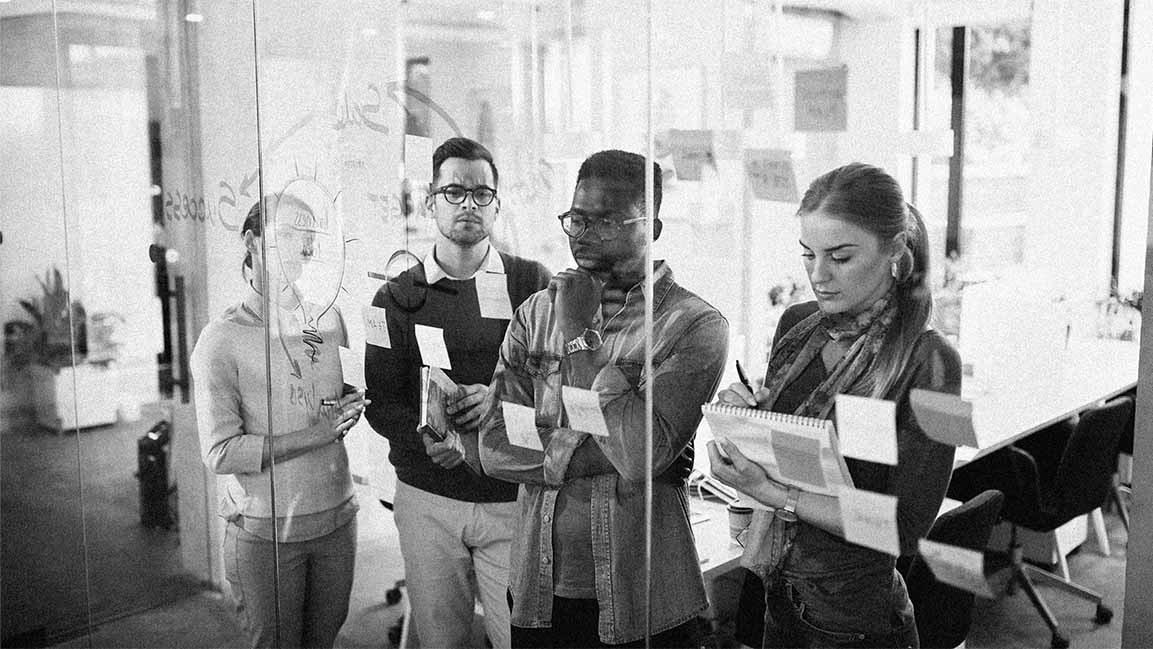- | 8:00 am
An anthropologist explains what millennials and Gen Z really think about sharing personal opinions at work
Christina Elson, PhD says ignoring cultural undercurrents won’t make them disappear. It will create a vacuum that employees might fill with wrong assumptions and worse behavior.

A civil workplace is a welcome respite from the emotionally manipulative and polarizing atmosphere generated by many public figures. Unfortunately, many business leaders discount the impact of polarizing social trends on work culture. Some project an ethos of bringing your whole self—except your ideological perspectives—to work. Others assume everyone reflects the views of leadership. A few assert that we don’t need to like everyone we work with.
From my perspective as an anthropologist, ignoring cultural undercurrents won’t make them disappear. It will create a vacuum that employees might fill with wrong assumptions and worse behavior. The opposite of a civil workplace.
My research with Kylie King on millennials and Gen Zs shows their attitudes about the impact of different ideological perspectives on work culture changes with age, gender, position of authority, and ideology.
Only half think it is comfortable to discuss ideology at work. Most older millennials say personal views on social issues don’t belong at work. Gen Zs are less likely to agree. Older millennials are less likely than Gen Zs to say clear guidelines exist to promote positive and respectful conversations representing different views. Both groups give relatively low scores to DEI and human resource leaders: 40% of older millennials say they model positive and respectful conversations representing different views.
On average, women and non-managers give workplaces lower marks, sometimes much lower, than men and managers. About 60% of men and managers say their firms create an environment where everyone feels comfortable discussing ideology. About 40% of women and non-managers say the same.
These patterns continue across items that ask if there are clear guidelines for inclusive discussions and how well leaders model inclusive behavior. Because managers are mostly equally divided between men and women, these outcomes probably reflect perceptions of leadership due to gender and position.
Is this just all politics? Democrats and Republicans are more similar than different. On some metrics, strong liberals and political independents look different. On average, strong liberals are more comfortable discussing their ideology at work, however, they, and political independents, are significantly more likely to disagree that there are clear workplace guidelines to discuss ideology or that senior leaders and DEI leaders model conversations that include different political ideologies.
We see similar patterns when we ask younger Americans about CEOs and entrepreneurs. Less than a third of strong liberals and political independents say the CEOs of large public companies positively impact society.
In contrast, half to three-fifths of liberals, moderates, and conservatives think they can be a force for good. Most strong liberals and political independents say entrepreneurs positively impact society, but they say it at significantly lower rates than liberals, moderates, and conservatives. And yes, women and non-managers are less supportive of CEOs and entrepreneurs than men and managers.
Equanimity means an even-handed approach to complex topics. Albert Einstein once said that few people could express with equanimity opinions that differ from their environment’s social prejudices. Most people, he said, couldn’t even form them. Self-censorship is one tool because not everybody is in the middle.
Another tool is avoiding efforts to shift everyone to one side of a debate. DEI is a polarizing topic. For many, its application labels individuals with narrow identities and ranks them hierarchically by moral worth. Most employees support diversity and inclusion and recoil if they believe the powers that be prioritize some identities over others.
Without equanimity, leaders may be surprised when employees or customers “suddenly” act in ways that turn a civil workplace into a polarized one and may respond in ways that harm the firm’s reputation and bottom line.
Too many thought leaders seek to trigger fear and outrage, shape life as a battle between good people who think like you and evil people who do not and propagate zero-sum thinking.
Equanimity requires civility. Leading with civility is a fraying idea, but it is one of the core values of a society that allows wide latitude for individuals to choose their economic and political views and believes free enterprise and free political thought are essential for the well-being of individuals and society.
In the past, most businesspeople and politicians believed these things were co-dependent. Business leaders valued capitalism and recognized that free markets and free enterprise work better when nations encourage free political thought. Politicians valued free thought and realized democratic institutions include free markets and free enterprise.
While they often had different perspectives on the specific role of markets and government, their views overlapped enough to encourage conversation and compromise. In the late 1970s, 92% of Americans said free enterprise was necessary for free government. Today, 59% of millennials and Gen Zs agree and 11% disagree. Unfortunately, 30% don’t know, aren’t sure, or don’t care.
To me, this is one more bellwether that polarization impacts work culture and equanimity is one of the best tools business leaders have to combat it. Unfortunately, even Einstein thought this was a tough job.








































